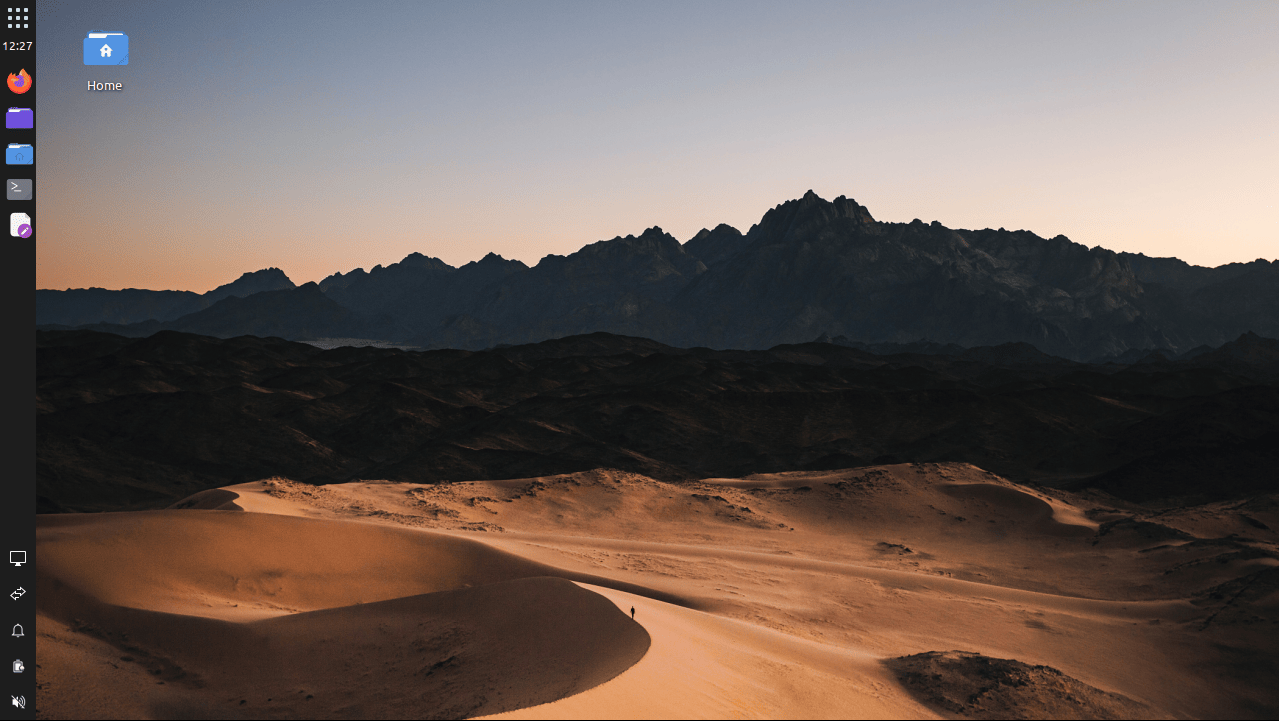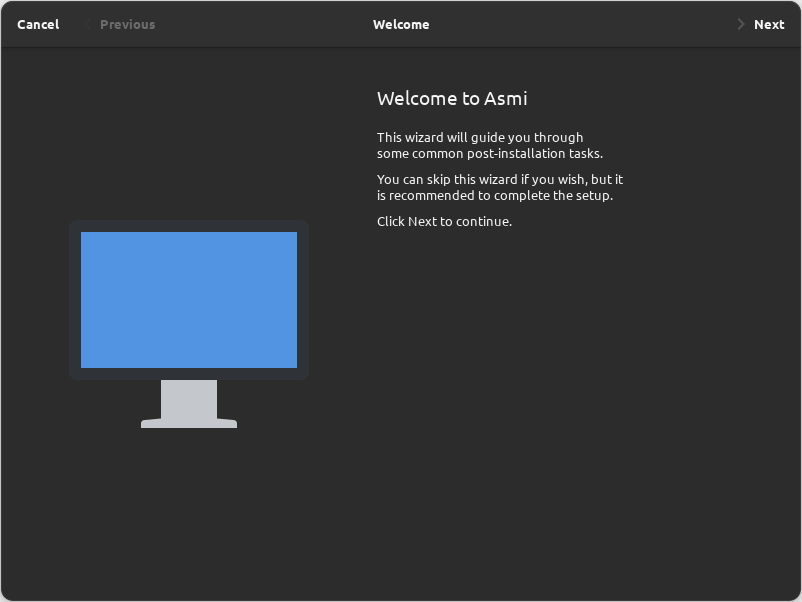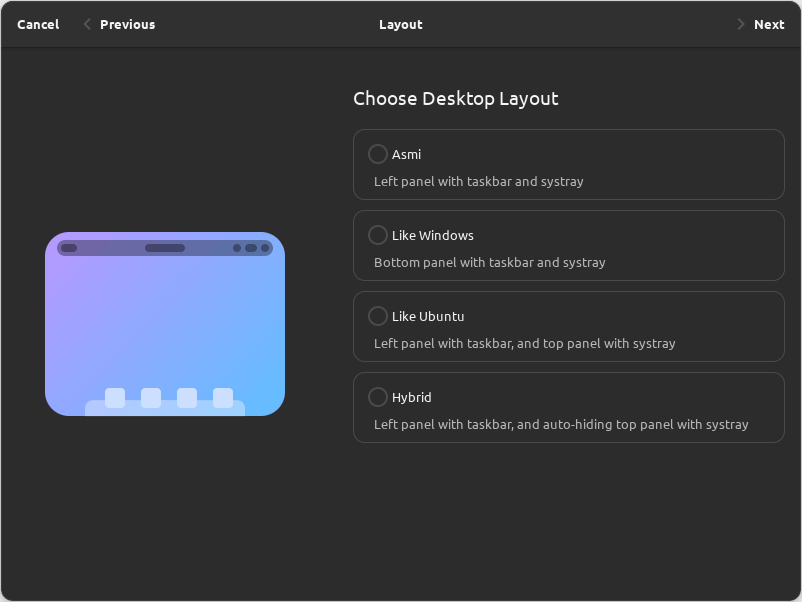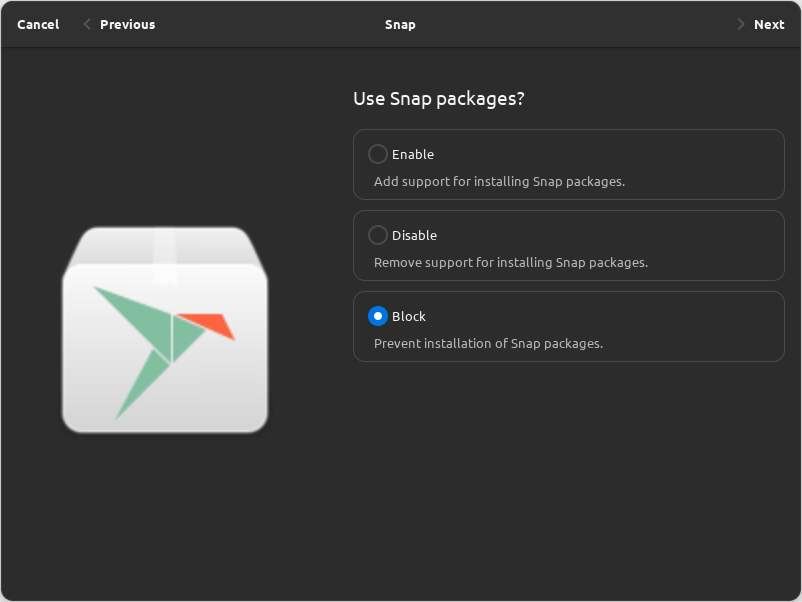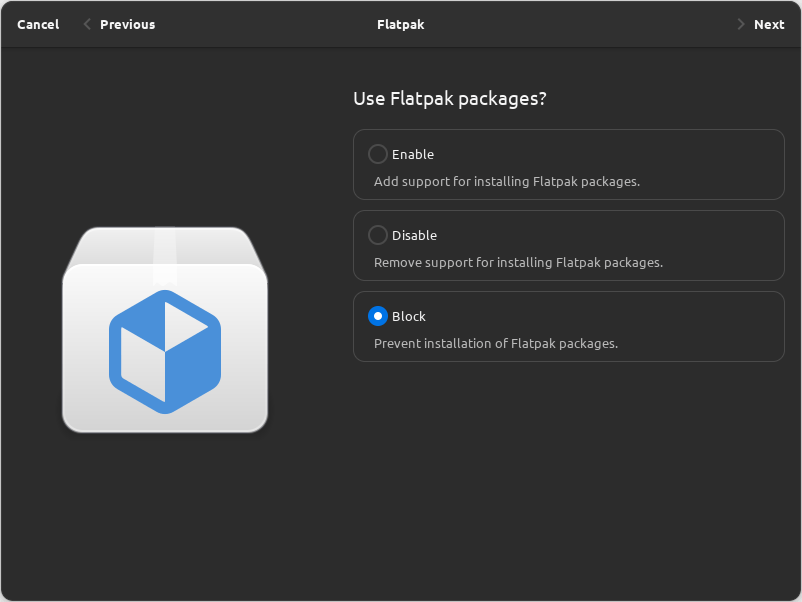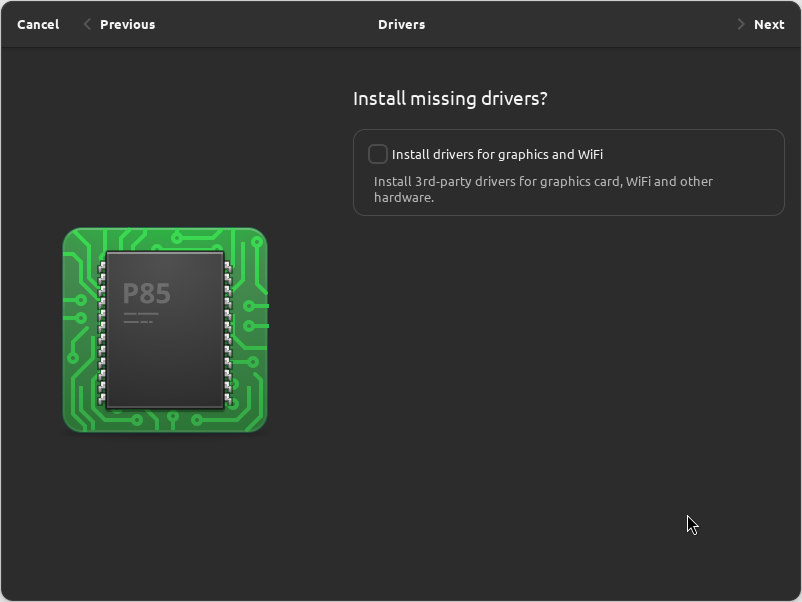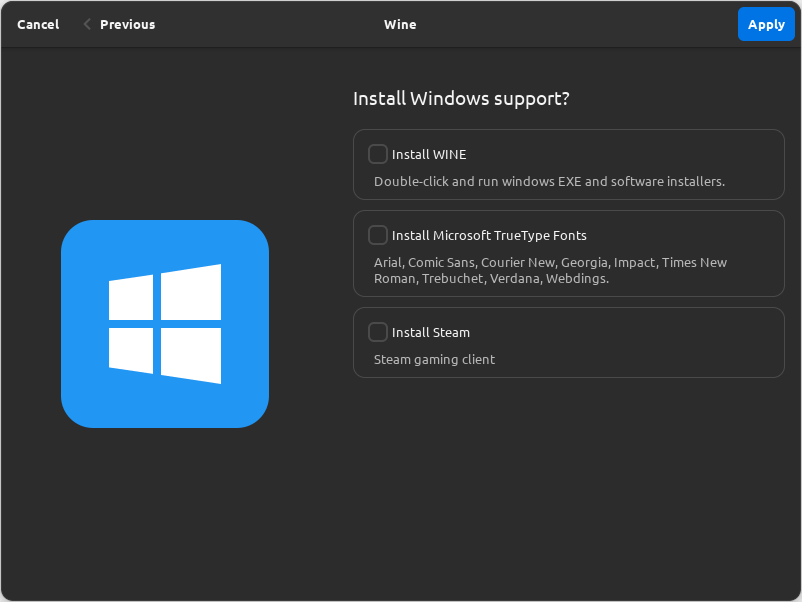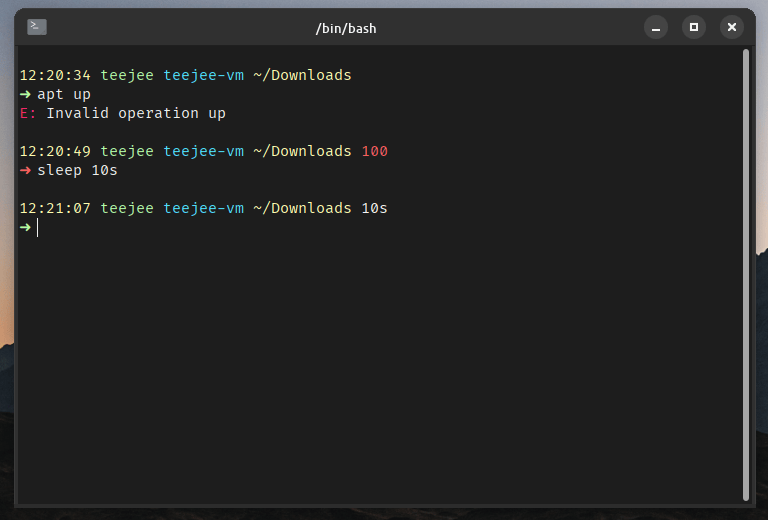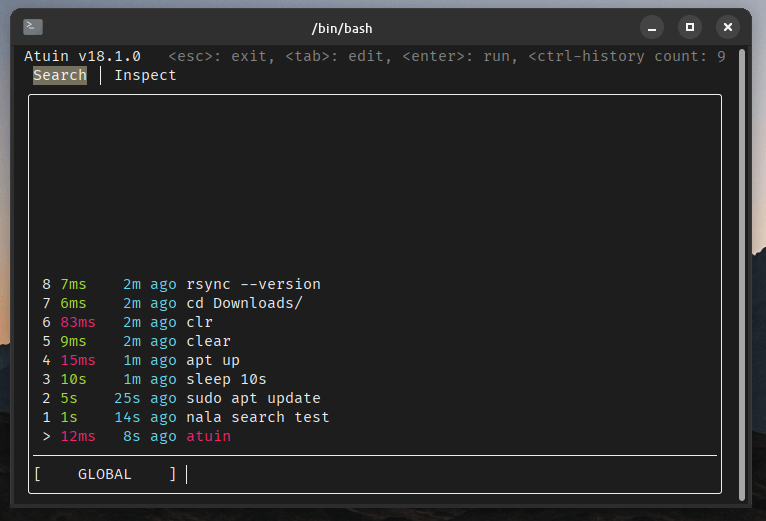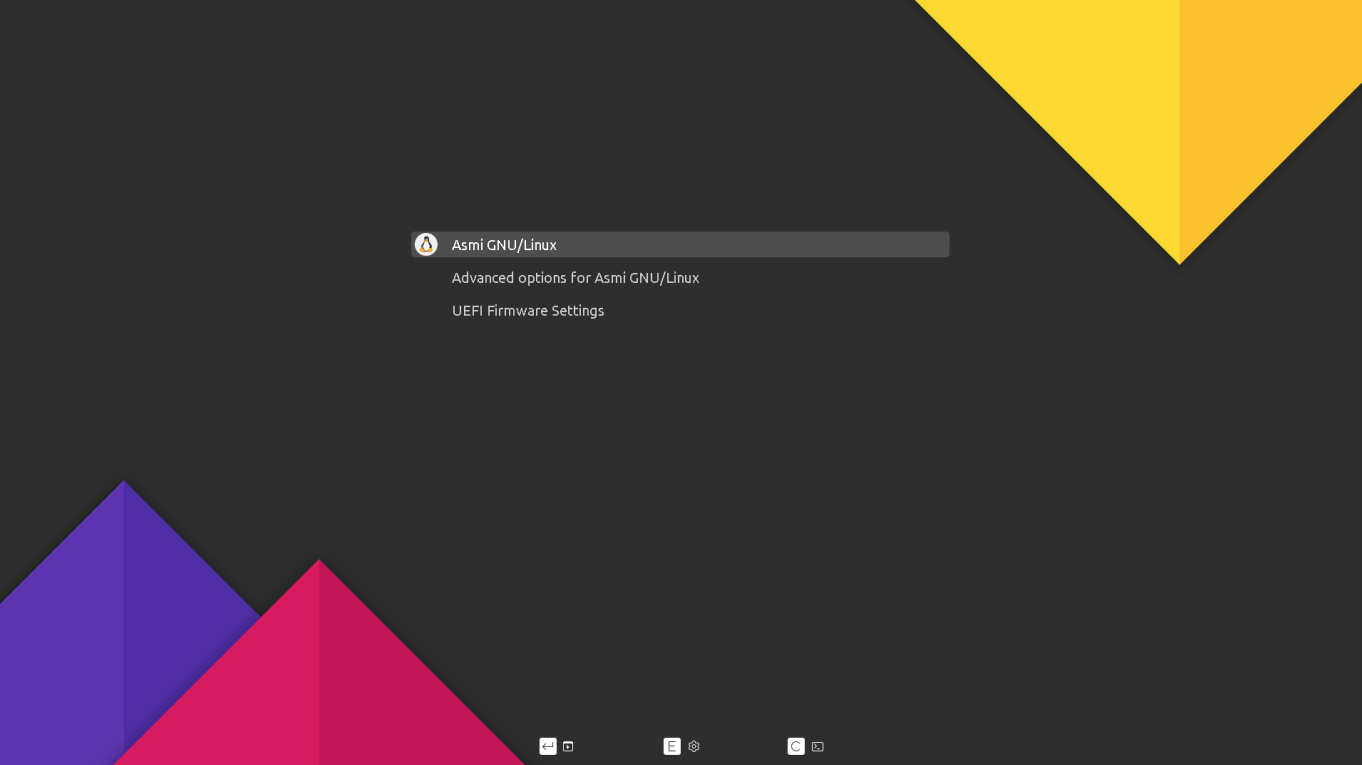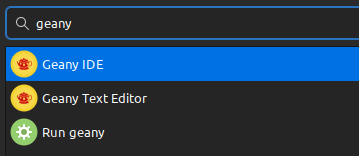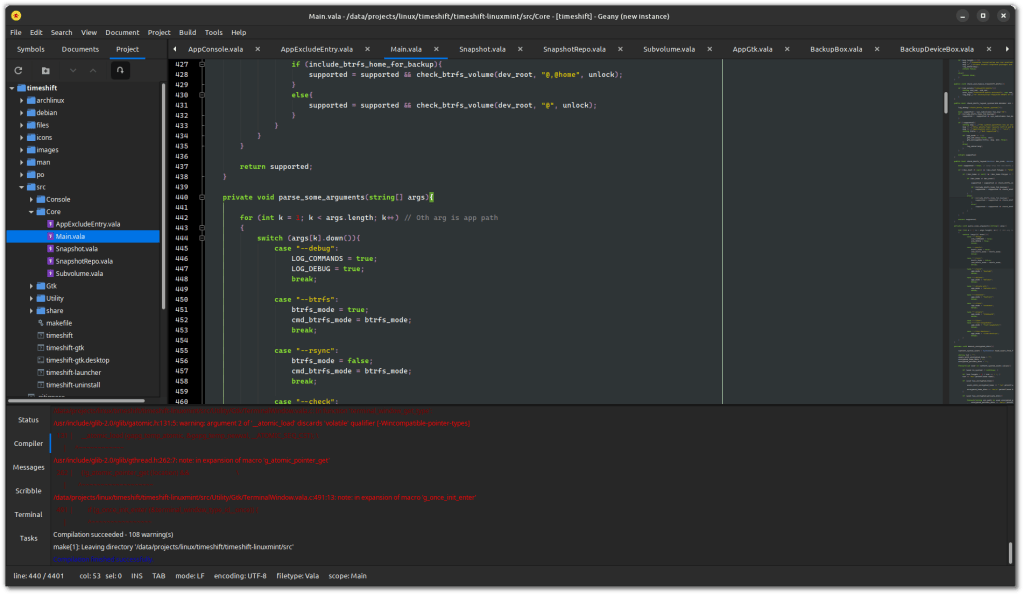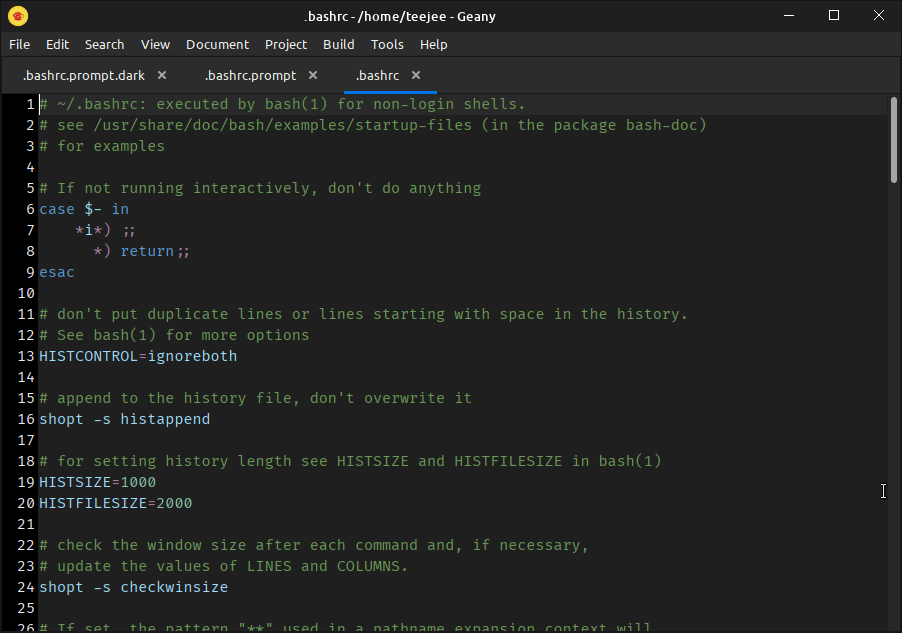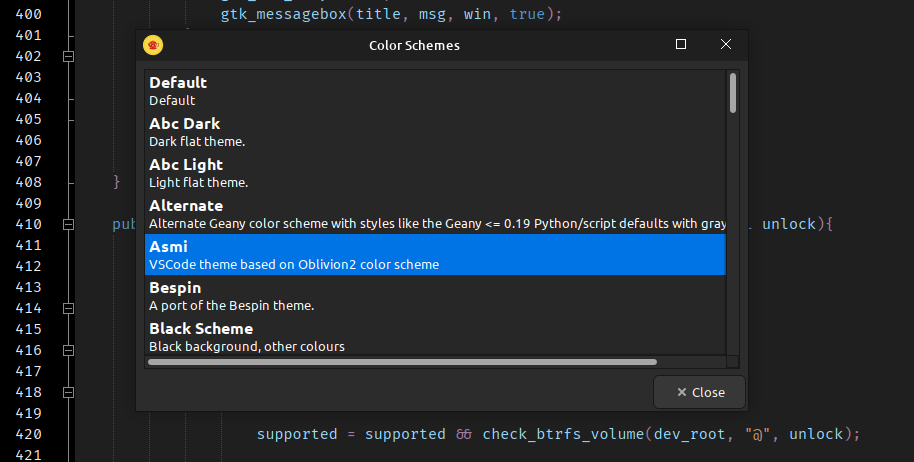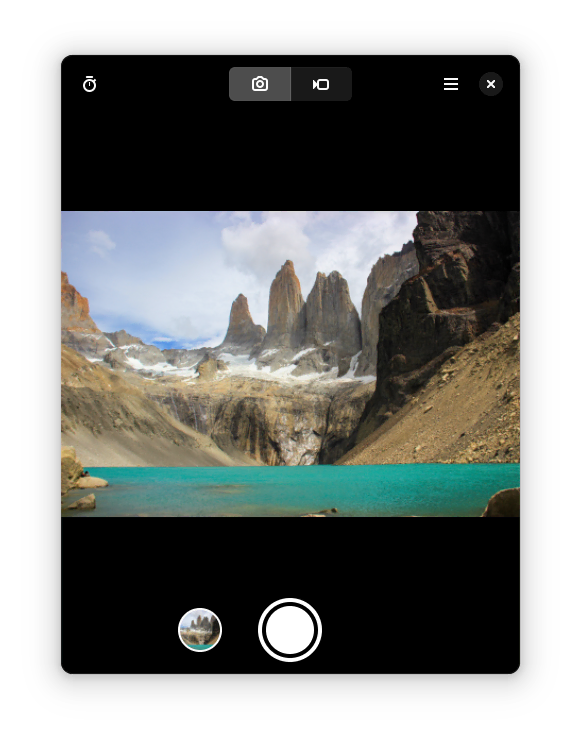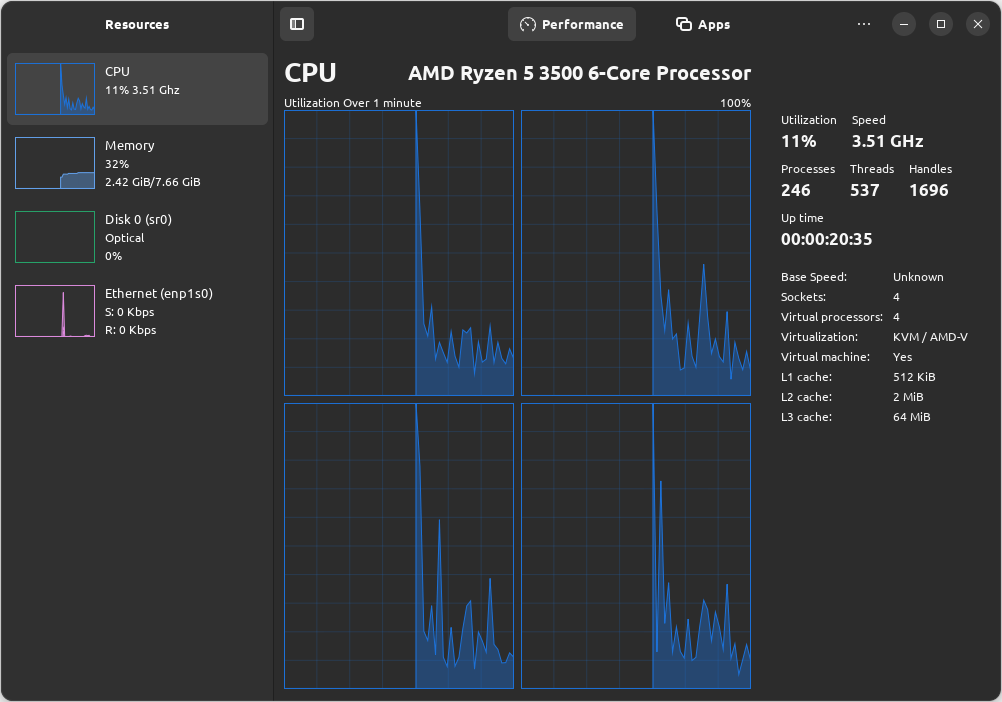Asmi 24.04 is now available.
The changes in this release are summarized below.
What’s New
New Name
Asmi was previously known as Zinc. The name was changed in the last release to avoid confusion with another Linux distribution that has a similar name. Asmi is a name in Sanskrit and Hindi that means “I am” or “I exist”.
Components
- Based on Ubuntu 24.04 LTS (Noble Numbat)
- Linux kernel 6.8
- Xfce 4.18 desktop
- Calamares 3.3.5 Installer
Asmi Settings
A new app was added for system configuration. It runs on first boot and provides options for common post-installation tasks such as switching between light and dark themes and changing the desktop layout.
Starship Prompt
The bash shell now uses the Starship prompt for displaying more information. Starship is written in Rust and has better performance than similar frameworks like “Oh-my-bash” which are written using bash scripts.
In addition to showing current time and working directory, it also displays the following:
- Time taken by the last command
- Exit code of the last command
- Python virtual environment name
- Git branch name
You can customize the prompt by editing the file ~/.config/starship.toml
Atuin Command Search
Atuin was added for searching command history.
Atuin is a magical tool for selecting previous commands from your bash history. Press UP, DOWN, or CTRL+R, to invoke Atuin and display a list of previous commands. Press ENTER to select the command and ENTER again to execute.
GRUB Boot Theme
A simple theme was added for the GRUB boot menu.
Geany Profiles
There are now two profiles for Geany in the start menu.
Geany IDE
This profile is for editing code. It displays a bottom pane with terminal, command output and messages; and a sidebar with open files, project structure, and symbols.
Configuration is saved under ~/.config/geany.
Command geany can be used to invoke this profile from a terminal.
Geany project files (*.geany) are associated with the Geany IDE launcher.
You can double-click any project file to open it in a new instance of Geany.
Geany Text Editor
This profile is for editing text files (as a simple replacement for GEdit and Mousepad). It has a simple layout with all extra panels disabled.
Configuration is saved under ~/.config/geany-editor.
Command geany-editor can be used to invoke this profile from a terminal.
Geany Color Schemes
There are now 45 color schemes preinstalled for Geany. You can pick any scheme that you prefer from File Menu » View » Change Color Scheme.
The default scheme is “Asmi” based on “Oblivion 2” with a color scheme similar to that of Visual Studio Code.
New Software
GNOME Snapshot (Camera) replaces Cheese as the default app for webcam and camera.
Mission Center is a system monitor written in Rust that is similar to the Windows System Monitor and provides a good overview of system resources.
Mozilla Repository
Firefox is now installed from Mozilla’s new repository for Debian and Ubuntu. This ensures that you get the latest updates for Firefox, directly from Mozilla themselves, instead of depending on third-party packages.
Networking Changes
Previous releases of Asmi and Zinc were configured to use Cloudflare servers for DNS resolution. However, it was only configured globally. The connections created by Network Manager still defaulted to using the DNS servers of your local ISP.
This is fixed now. Any new network connections that you create will use Cloudflare DNS by default, and Google DNS as fallback.
You can check active DNS servers by running the following command:
resolvectl dns
Python 3.12
Starting with Ubuntu 23.04, it is not possible to install Python packages globally using sudo pip3 install packagename. Python packages must be installed locally by creating a virtual environment. The rationale is explained in PEP-668.
I have reverted this change in Asmi 24.04 as it is inconvenient for casual users. If someone wants to install a few Python packages, there is no need to force them to set up a virtual environment.
-
If you are a casual user you can go ahead and install packages globally with
sudo pip3 install packagename. The package will be available everywhere on your system. -
If you are an experienced user then you already know why installing packages globally is a bad practice. Create a virtual environment for your project and install packages inside that environment.
Note: pipx provides functionality similar to pip3 for application packages (that provide a executable command). Use the command pipx install packagename to install a package for the current user. Once installed, the command provided by the package will be added to the current user’s PATH and will be available everywhere for the current user.
7zip Support
Since the 23.10 release, Asmi includes the package 7zip instead of p7zip.
p7zip is an unofficial port of 7zip which is outdated and has
not been updated since 2016.
7zip is the official version of 7zip
for Linux from the 7zip developers.
This package provides the command 7zz for managing 7zip archives.
Commands 7z, 7za, 7zr are symlinked to 7zz for compatibility with existing scripts.
Changes for unprivileged user namespaces
Ubuntu 24.04 ships with stricter kernel settings that restrict unprivileged user namespaces.
While this is good for security, Electron-based apps (like Etcher) will no longer work out-of-the box on Ubuntu, unless they install an AppArmor profile to allow the app to run. Most Electron-based apps don’t include an AppArmor profile in the package and will fail to run as a result.
I have reverted this change in Asmi 24.04 so that Electron-based apps
continue to work normally. If you have stricter security requirements
for your system, you can enable it again by editing the file
/etc/sysctl.conf.
Other Changes
ubuntu.sources
In Ubuntu 24.04 the official repositories are configured in
/etc/apt/sources.list.d/ubuntu.sources instead of /etc/apt/sources.list.
However, there are still some tools (like pbuilder and Calamares for example) that
expects to find the Ubuntu repo information in sources.list.
Asmi 24.04 continues to use sources.list for compatibility with
such tools.
vm_max_map_count
vm_max_map_count was increased to 1048576 to improve
the performance of some PC games.
You can check the current value by running the following command:
sysctl vm.max_map_count
Screen Resolution
The desktop will default to 1080p resolution when booted in Virt-Manager or VirtualBox. This ensures that the screen is large enough to display the Calamares installer window. VirtualBox and Virt-Manager usually default to 800x600 which clips the Calamares window making it difficult to use.
The desktop will also default to 1080p resolution when booted on a physical machine. This ensures that the text displayed on the screen is legible when booted on high-resolution or 4K displays.
After booting to the desktop, the Xfce Display Settings window will open where you can select the preferred resolution.
Window Borders
Window borders are now 4px in thickness. This makes it easier to grab the window border with the mouse and resize the window.
